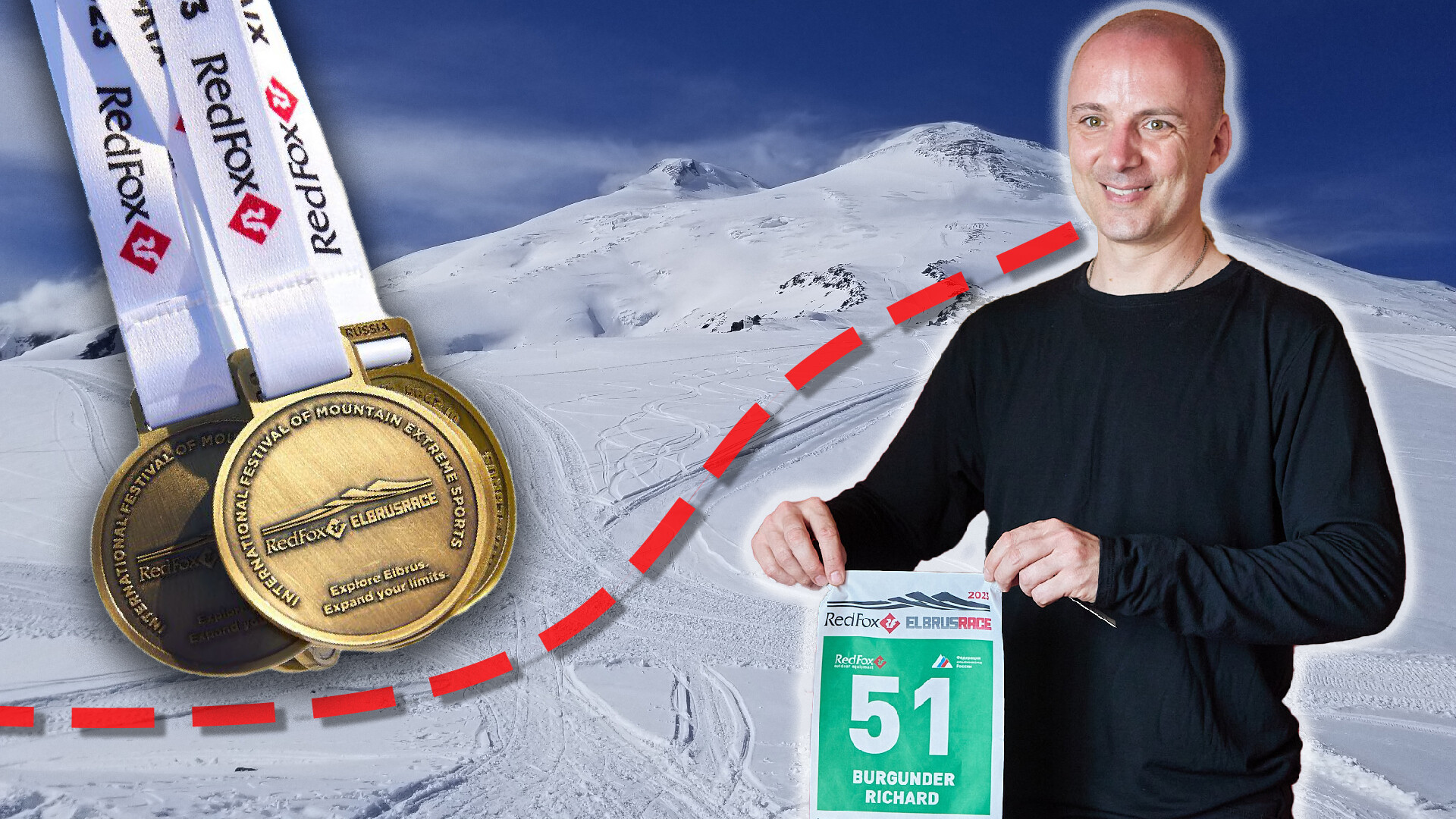
Upon visiting Russia for the first time as a student in 2019, Richard Burgunder was inspired to take part in the skyrunning competition on the icy peak of Mount Elbrus. Having engaged in alpine extreme sports in his younger years, with competitions in exotic locations from Japan to Kenya, he set his sights on conquering Russia’s – and Europe’s – tallest peak in the Caucasus. This is his story.
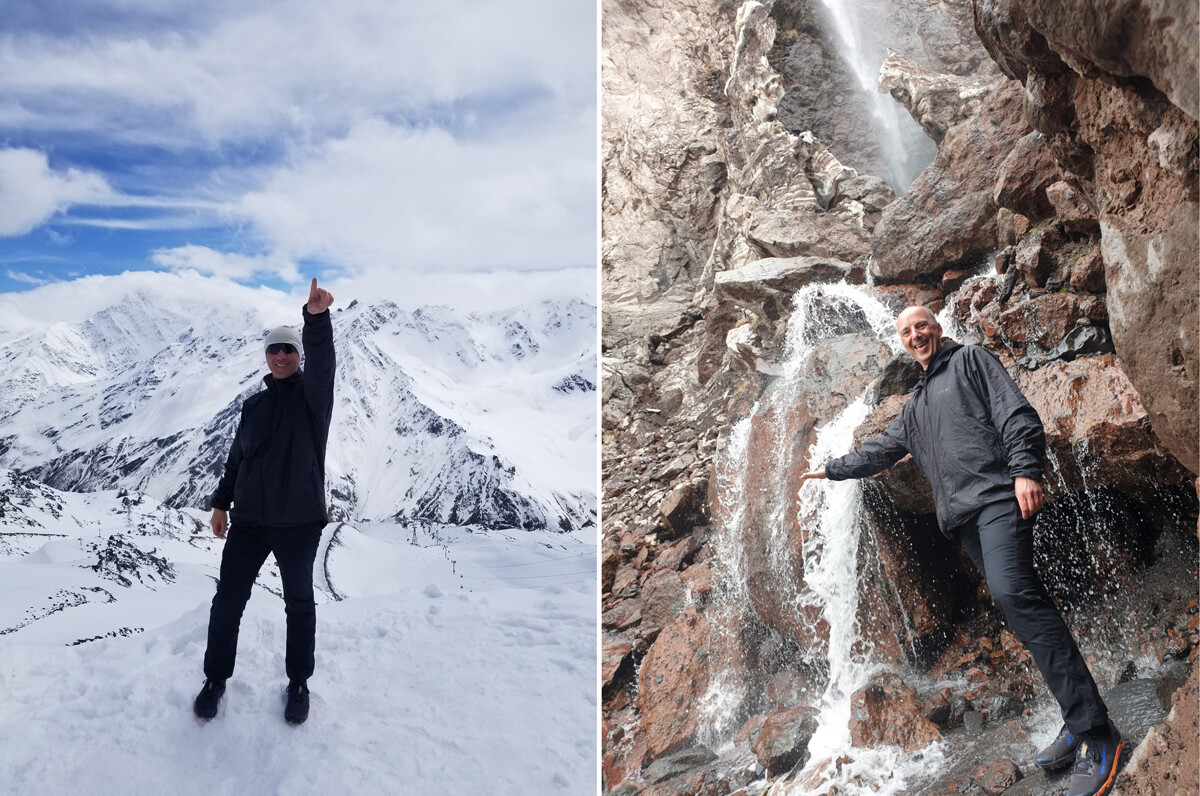
On Elbrus and waterfall on Azau Glade.
Richard BurgunderThe allure of climbing Mount Elbrus has intrigued and mystified me for years. At 5,642 m (18,510 ft), this is the highest mountain in Europe. The Northern Caucasus, a part of Russia that I was eager to see, following my initial visits to Moscow and St. Petersburg, beckoned. It was around Christmas 2022 when I decided to take the plunge and commit to competing in the 2023 Red Fox Elbrus Race, an international skyrunning event held annually in May.
Though I hadn’t competed since 2014, after a decade-plus long career as a professional extreme athlete, I stayed active and maintained my fitness through regular fastpacking, hiking and trail running. After about a month of consistent training and feeling confident in my fitness, I applied for my Russian visa with an invitation letter from the race promoters. Despite some anxiety, due to the deteriorating geopolitical conditions, the process went surprisingly smoothly.
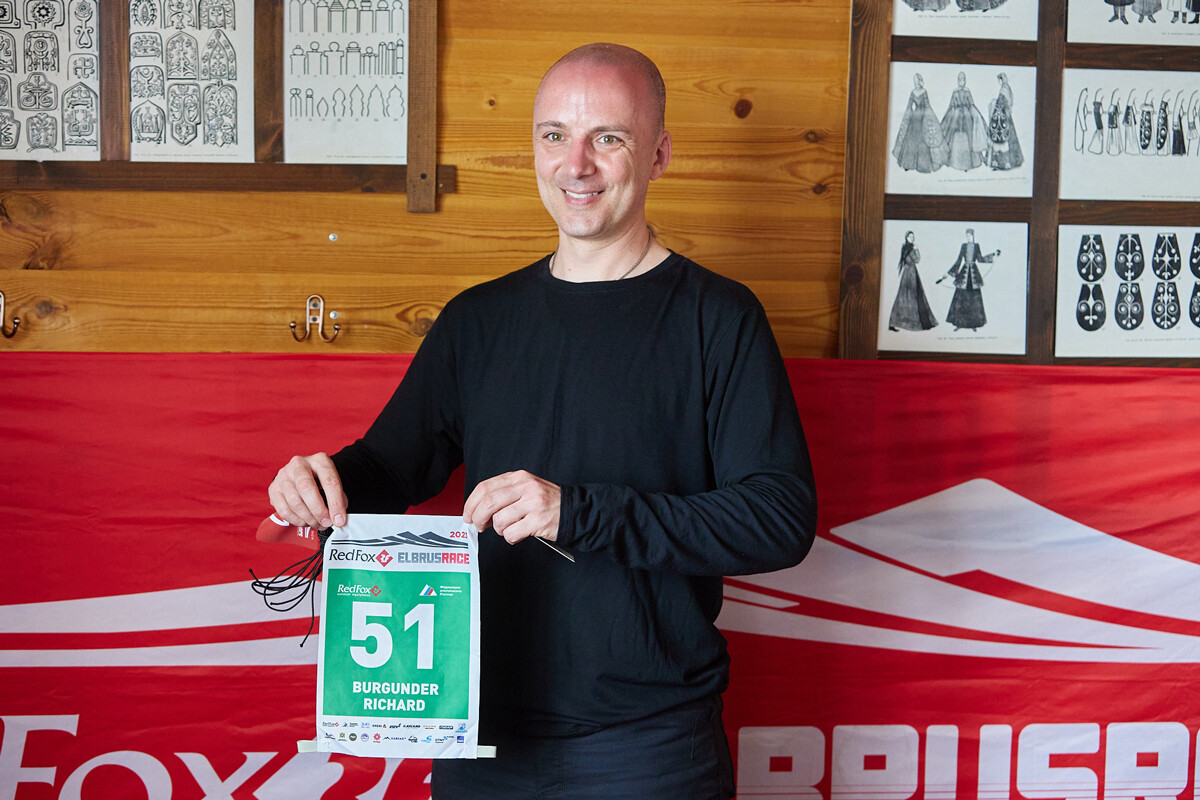
Registration.
Roman BarabonovMy three-year multiple entry tourist visa was processed within a couple of days and I flew to Russia’s Mineralnye Vody (the closest airport to Mount Elbrus) via Armenia. The drive through the region was enjoyable, with its astonishing vastness and respectful, accommodating locals.
Many Russian athletes commended my bravery for traveling to Russia during turbulent times, while others, such as the customs agent at passport control, wished me good luck in the races. Throughout the region, I felt a strong sense of community and inclusiveness, reflecting how Russia’s cultural and ethnic groups have harmoniously coexisted for thousands of years.
On Friday, May 5, I participated in my first race of the festival, the ‘Vertical Kilometer’. This extremely challenging race involved a vertical gain of 1,000 m (3,281 ft), starting in Azau Glade at 2,450 m (8,038 ft) and finishing at Mir Station at 3,450 m (11,320 ft). I finished 92nd with a time of 1:22:06. As my performance was under two hours, I qualified to compete in the Skymarathon on Sunday.
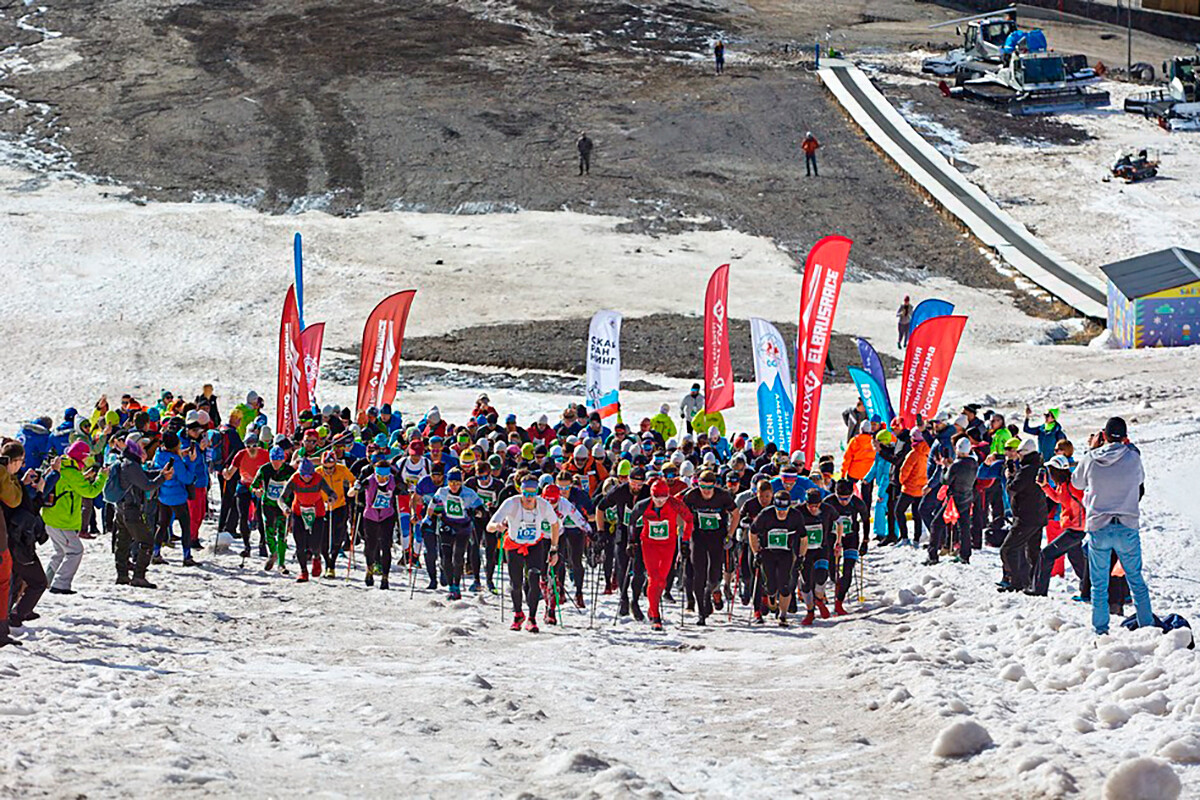
The start of Vertical Kilometer.
Roman BarabonovThe ‘Vertical Kilometer’ was a formidable race, with a steep and tedious ascent. The temperature was mild at the start (about +1°C) but dropped to a chilly -3°C as I approached the Mir Station.
I quickly realized that my training was inadequate for the extreme nature and ultra-competitive field of this race, but many athletes encouraged me along the way and the sportsmanship was unparalleled.
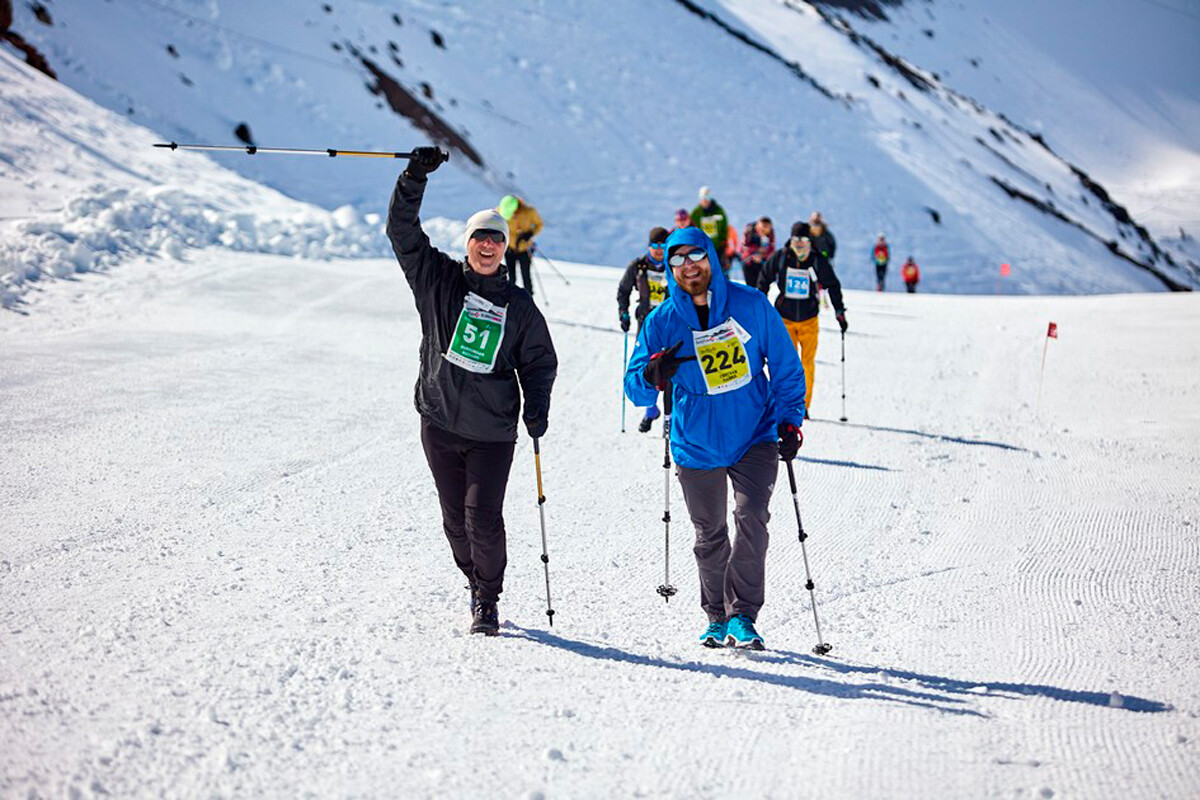
Richard (left) during the Vertical Kilometer.
Roman BarabonovCrossing the finish line, I was overcome with emotion and hugged by several staff. It was an uplifting and joyous moment that I’ll never forget. The incredible support from everyone brought out the best in me and all the athletes.
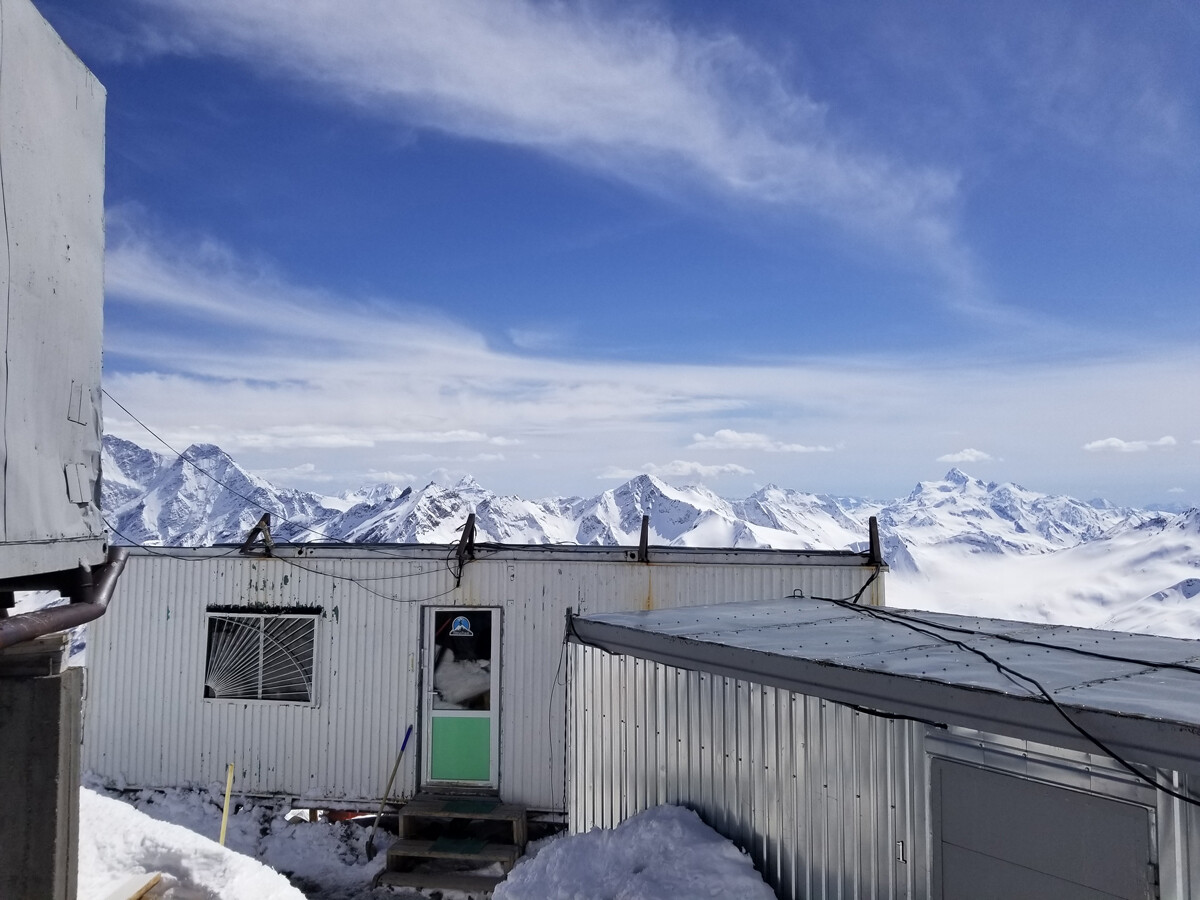
Garabashi-Bochki camp on Mount Elbrus.
Richard BurgunderAfter taking a day of rest, I traveled up to the base and summit camp known as Garabashi-Bochki (“Barrels”) at 3,880 m (12,470 ft) for the night before the Skyrace. Originally, I was slated to compete in the Skymarathon, but switched to the Skyrace, which started at Garabashi, rather than Azau Glade. Both races were supposed to finish at the summit of Mount Elbrus, but were modified due to adverse weather conditions.
At 3 am the night before the start, officials, citing safety concerns, decided that both races would ascend only to the Pastukhov Rocks at a height of 4,550 m (14,930 ft), rather than the summit. The participants would then turn around and finish on the Garabashi-Bochki.
My night at Garabashi was a unique and memorable experience. The views of Mount Elbrus and the North Caucasus were extraordinary with endless mountains in every direction. The winds were loud and strong throughout the night, awakening me in the early morning, but otherwise I slept well.
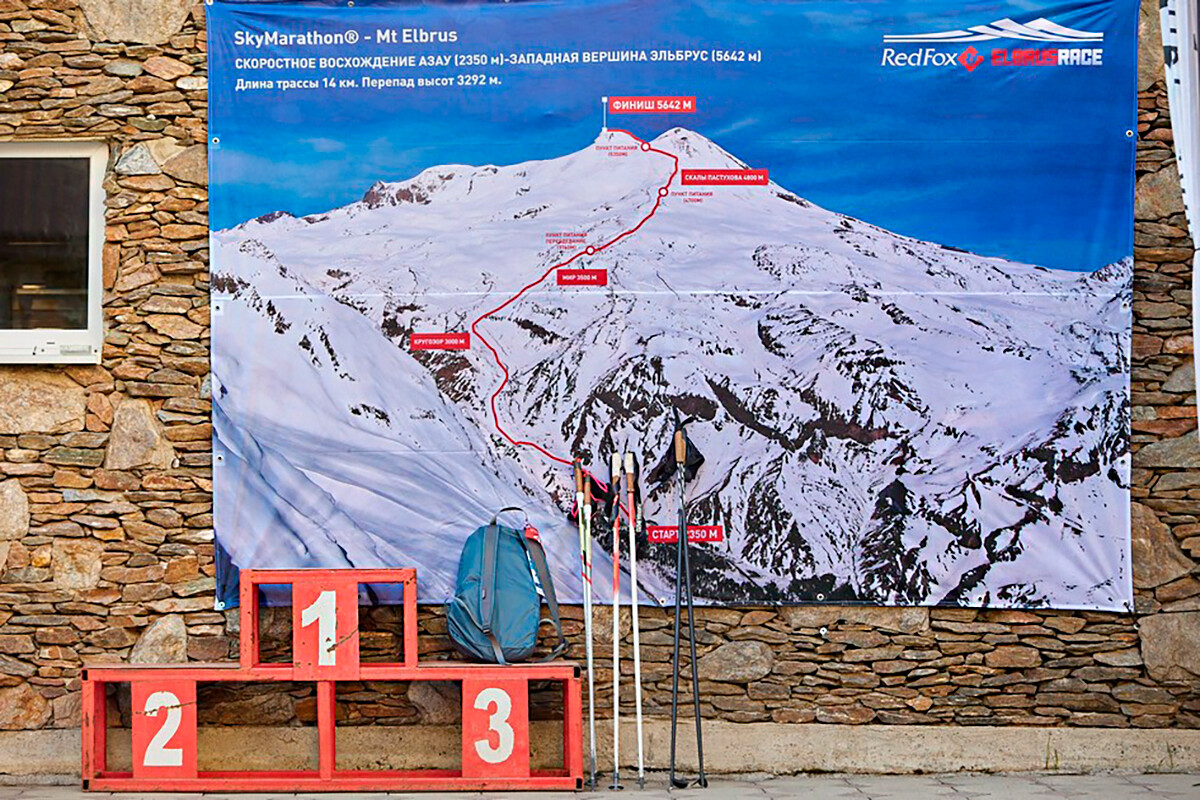
The map with the race route.
Roman BarabonovOn Sunday, May 7, I woke up at about 5 am. The weather conditions were extreme and worsening. We all knew we were in for a surprise, but most of us didn’t realize just how wild it would be higher up on the mountain during the race. Not long after the start, the snowfall intensified.
Within a couple hundred meters of the turnaround at 4,550 m (14,930 ft), the conditions on the mountain were akin to a blizzard. The temperature at the start was -5°C, but it dropped to about -12°C at Pastukhov Rocks.
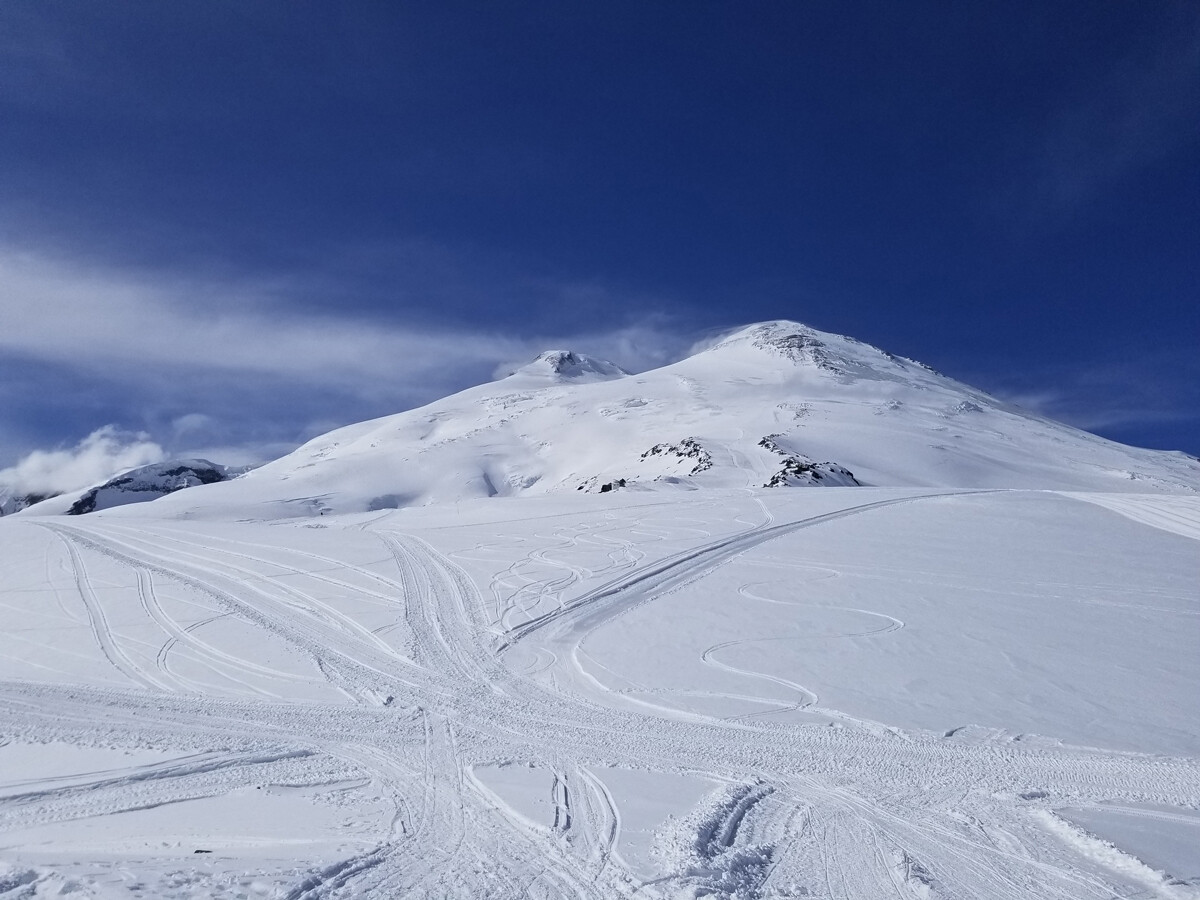
Mount Elbrus.
Richard BurgunderDue to the deteriorating weather conditions, the turnaround point ceased to be “operational” and the high-altitude judges were compelled to make the tough call of closing the route for safety purposes. With sustained winds of 50 km/h, blinding snow, near zero visibility, thunder and lightning, it was both an exhilarating and terrifying experience.
There was a moment when I began seeing mirages through my sunglasses because of the extreme weather conditions. I mistook these apparitions for red flags that were used as course markers and other athletes. Despite the eerie feeling, we athletes stuck together and kept an eye out for each other, ensuring that we all made it back safely. I finished 49th overall with a time of 2:25:48. The Skyrace was an adventure and challenge that I’ll never forget.
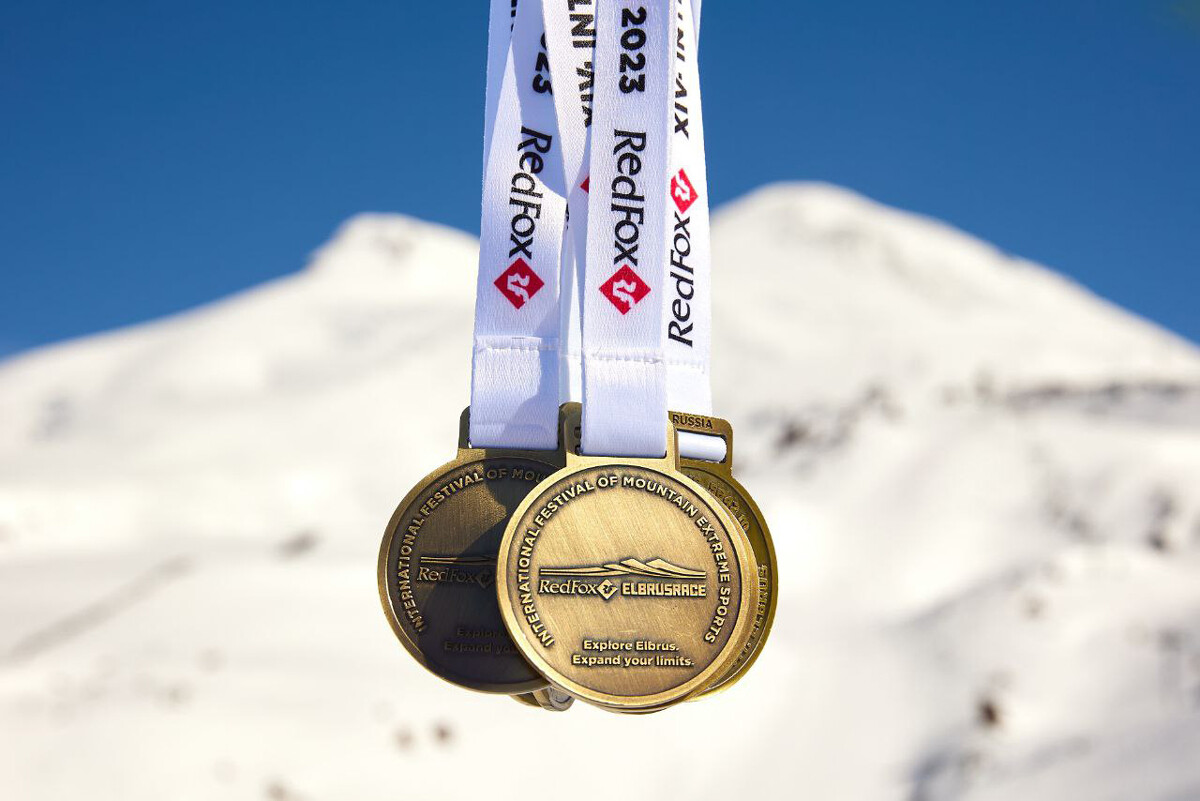
Richard Burgunder is the founder and managing director of a professional services firm. You can follow him at Burgunder.com
Dear readers,
Our website and social media accounts are under threat of being restricted or banned, due to the current circumstances. So, to keep up with our latest content, simply do the following:
If using any of Russia Beyond's content, partly or in full, always provide an active hyperlink to the original material.
Subscribe
to our newsletter!
Get the week's best stories straight to your inbox